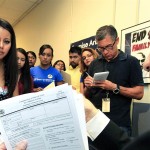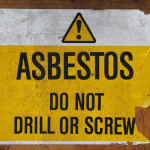Immigration Judicial Complaints Remain Cloaked
Immigration Backlog Shows Need For More Lawyers

This photo was part of an NBC News report, “Demand Intensifies for Nonprofit Immigration Lawyers” discussing how the US immigration system is seriously lacking in how it represents the poor.
NBC News is among those taking a look back at 2014 and finding the country’s immigration system seriously lacking in how it represents the poor. Says NBC, “… the past summer’s flocking of children and families to the U.S.-Mexico border, the president’s impending executive action on immigration and the two-year-old Deferred Action for Childhood Arrivals, DACA, have intensified demand for immigration attorneys, particularly those who charge little to nothing. With each success, they amplify the difference good legal help can make in the lives of immigrants.”
A History Lesson On Race-Based Immigration
S.F And L.A. Sue Uber Car Service
BASF Case Focused On Concealing Evidence
Immigration Courts Face Obama Actions
President Obama’s executive actions on immigration will impact the civil courts system, but it’s hard to know how soon that will happen – or how much the impact will be. Southern California public radio station KPCC is reporting it as “promising news” for immigration judges “… who have long sought more resources for their busy courtrooms, says Bruce Einhorn, a former immigration judge who served in the LA courts for more than 15 years.”:
The KPCC reports says that a typical judge in Los Angeles has about 2,500 cases on their docket, which means an average case takes more than two years to reach a decision, but that could change with Obama’s action. Einhorn, said it will take time to see the effects on the ground. One group that will likely not find relief are the thousands of child migrant cases that are working their way through the courts. As Take Two has been covering on the program, more than 7,000 children are being heard in Los Angeles alone. Since they arrived in the country within the past five years, they probably will not qualify under the new rules from Obama.
Read and listen to the report here: Obama’s actions could affect thousands at LA’s immigration courts.



